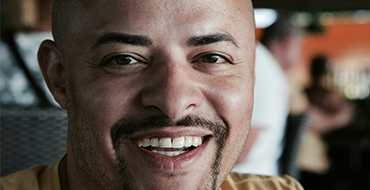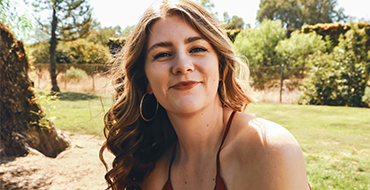Do's And Don’ts After A Tooth Extraction
Do’s for the first 48 hours
Take some time off work to relax and get plenty of rest
After a tooth extraction, it is recommended to take time to allow your body to rest and heal for a day or two. Try to avoid any strenuous activity so that you can feel at your best once healed.
Rest or sleep with your head elevated

Once a tooth is extracted, the body’s natural healing response is to form a blood clot where the tooth was removed. Resting and sleeping with your head elevated will allow the blood clot to form smoothly and promote healing.
Gently bite gauze to promote blood clotting
Your dentist will likely place gauze over the site where your tooth was extracted to promote normal blood clotting. You can gently bite down on the gauze for a period of time, which will help reduce the bleeding. You may change out the gauze for a new piece as needed.
Take your medications as prescribed
In some instances, your dentist may prescribe medications following a tooth extraction, such as antibiotics and pain relievers. Be sure to follow your dentist’s recommendations and instructions for any medication prescribed.
Apply ice packs
Ice can help reduce swelling, which is a normal post-operative complication of tooth extractions. You may be instructed to place an ice pack on the area of swelling in 15-minute intervals.
Consume lots of water
Water is necessary to help keep your teeth and extraction site clean. Water helps rinse away oral bacteria that can cause dental infections.
Maintain a diet of soft, healthy foods
The first two days it is best to maintain a soft diet to avoid damaging the extraction site. Tooth-friendly foods including yogurt, mashed potatoes, macaroni and cheese, or scrambled eggs, can be good options during your healing period.
Brush your teeth gently
It is still important to brush your teeth after having a tooth extracted but be sure to do so gently. Do your best to be very careful surrounding the extraction site to avoid interrupting the healing process.
Don’ts for the first 48 hours
Don’t smoke
Smoking is bad for numerous health reasons, and can be even troubling when it comes to tooth extractions. Smoking can delay the healing of the extraction site and lead to the development of a painful oral condition known as dry socket.
Avoid the use of straws
After a tooth extraction, you’ll want to avoid using a straw, as the sucking motion can interrupt the formation of the blood clot at the extraction site. This can also increase your risk of bleeding and dry socket.
Do not rinse your mouth
Avoid rinsing your mouth for the first 24 hours after a tooth extraction to allow the extraction site to heal undisrupted.
Avoid spitting
As with using a straw, spitting invokes a pressure being placed on the extraction site that can disrupt blood clotting. Instead of spitting, simply let any saliva or liquid you need out by letting it drip out over the sink.
Do not consume hot drinks
Avoid consuming hot drinks, which can damage the extraction site. Instead, opt for room temperature foods and beverages.
Don't consume carbonated or alcoholic beverages
Carbonated and alcoholic beverages should also be avoided, as they can increase your risk of developing oral complications due to their acidity.
Avoid chewy or hard foods
Chewy and hard foods can become lodged within the extraction sites and impact the healing process. It is also best to avoid chewing on the side of the extraction.
Avoid sneezing or blowing your nose
Blowing your nose or sneezing can lead to an increase of pressure within the oral cavity, which can disrupt the blood clot. If you’re having a hard time controlling a sneeze, try to keep your mouth open to help reduce the amount of pressure.
Avoid using your tongue to touch the extraction area
Do your best to keep your tongue away from the extraction site. The tongue is a strong muscle that can dislodge the blood clot and increase your chance of developing dry socket and other oral issues.
Aspirin should be avoided
It is recommended to avoid taking aspirin after a tooth extraction, as aspirin acts as a blood thinner and can lead to further bleeding. Check with your dental professional regarding which medication is best for you after your tooth extraction.
Do’s after 48 hours
Continue to clean and floss your teeth
Brushing and flossing should occur as normal to maintain good oral health. Just be careful when brushing or flossing around the extraction site until completely healed.
Continue to eat soft foods
Maintain a soft diet until the extraction site is healed to help prevent complications.
Don’ts after 48 hours
Avoid hard meals and foods containing seeds
Until your extraction site is completely healed, hard foods and seeds should be avoided as these can damage the extraction site and increase your risk of dental infection.
Keep the toothbrush away from your extraction area
Avoid brushing the extraction site until healing is done so that you do not disrupt the clot formation.
When should you go to a dentist after tooth extraction
The healing process after a tooth extraction may take several days and can vary with each individual. Mild swelling and bleeding are normal following a tooth extraction, however there are some signs or symptoms that warrant contacting your dentist. You should contact your dentist if you experience extreme and/or persistent pain and swelling, fever, nausea or vomiting, or drainage form the extraction site accompanied with a foul smell or taste. Your dental professional will diagnose the problem and offer the best course of action to alleviate the problem.



